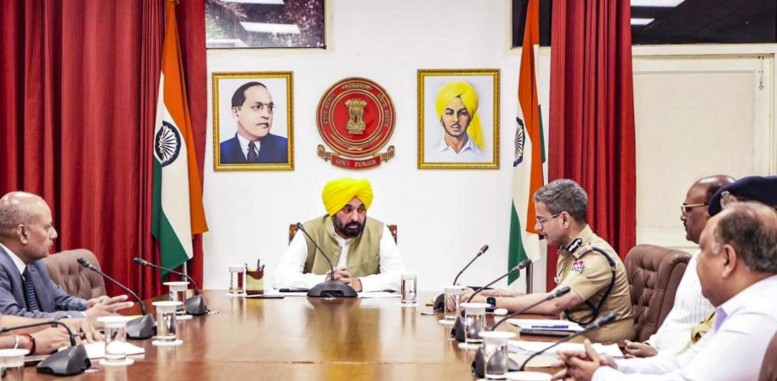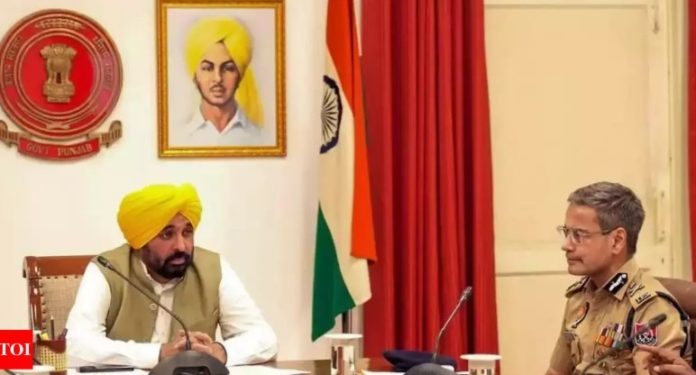In the wake of the recent terror attack in Pahalgam, Jammu and Kashmir, which claimed several lives and sparked nationwide outrage, Punjab Chief Minister Bhagwant Mann convened a high-level security meeting on Monday evening to assess the current security apparatus across the state and ensure that all necessary measures are in place to prevent any spillover effects or potential threats. The Chief Minister expressed deep concern over the rising attempts by anti-national elements to destabilize peace and harmony in border regions and emphasized the urgent need for a coordinated and proactive response.
The meeting, held at the Punjab Civil Secretariat in Chandigarh, brought together senior officials from the Punjab Police, intelligence agencies, paramilitary forces, and representatives from the home and defence departments. Director General of Police (DGP) Gaurav Yadav gave a comprehensive briefing on the present security situation in Punjab, particularly focusing on border areas, sensitive districts, and strategic installations.
Chief Minister Mann began the meeting by expressing solidarity with the victims of the Pahalgam attack and their families. He condemned the cowardly act of violence and reiterated Punjab’s unwavering commitment to supporting national efforts to combat terrorism. Mann stated, “Punjab has suffered the brunt of terrorism in the past. We are determined never to let such dark days return. Our government stands resolute in ensuring the safety of every citizen.”

The Pahalgam incident, which saw militants opening fire on a convoy of pilgrims, has reignited security concerns across northern India. Given Punjab’s geographic proximity to the international border and its historical vulnerabilities, the Chief Minister said it was imperative to remain on high alert. “We cannot afford complacency. There are always elements trying to disrupt peace and exploit religious sentiments,” he remarked.
Officials briefed the Chief Minister on the security protocols currently in place, including the deployment of additional police personnel along the Indo-Pak border, enhanced surveillance through drones and night-vision cameras, and intensified checks at interstate and intrastate checkpoints. Intelligence inputs were also shared, suggesting that some groups may attempt to use Punjab’s terrain as a transit corridor.
The Chief Minister directed security forces to enhance patrolling in border districts such as Gurdaspur, Pathankot, Ferozepur, and Fazilka. He also emphasized better coordination between Punjab Police and central agencies like the Border Security Force (BSF), Intelligence Bureau (IB), and the National Investigation Agency (NIA).


